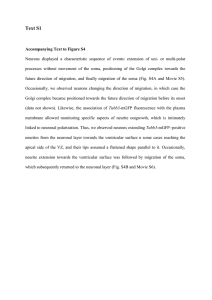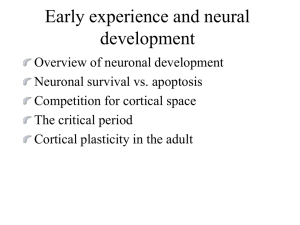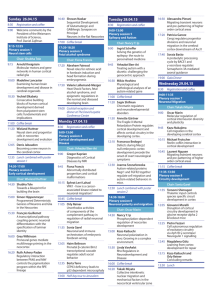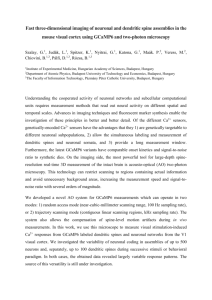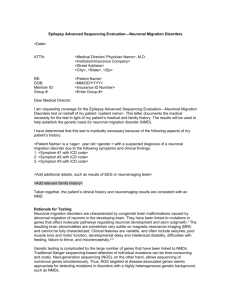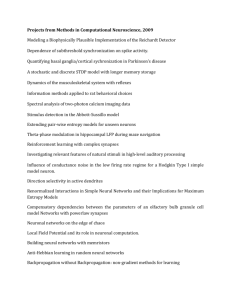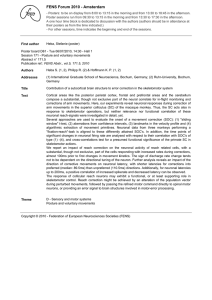EMBLEM Ref 541
advertisement
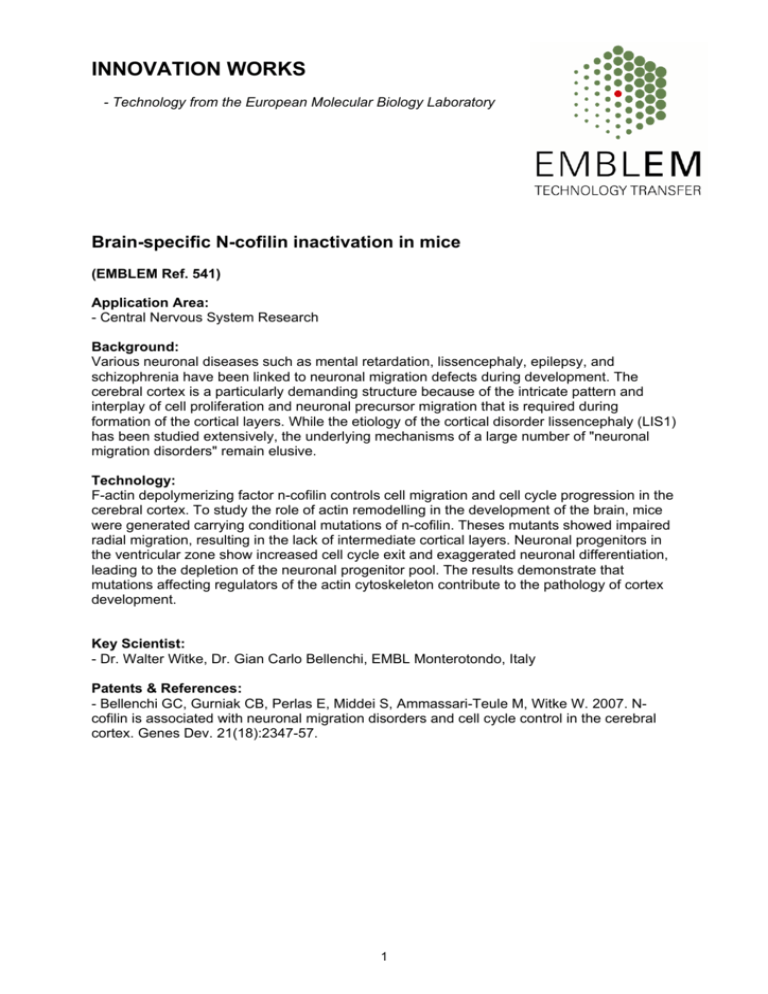
INNOVATION WORKS - Technology from the European Molecular Biology Laboratory Brain-specific N-cofilin inactivation in mice (EMBLEM Ref. 541) Application Area: - Central Nervous System Research Background: Various neuronal diseases such as mental retardation, lissencephaly, epilepsy, and schizophrenia have been linked to neuronal migration defects during development. The cerebral cortex is a particularly demanding structure because of the intricate pattern and interplay of cell proliferation and neuronal precursor migration that is required during formation of the cortical layers. While the etiology of the cortical disorder lissencephaly (LIS1) has been studied extensively, the underlying mechanisms of a large number of "neuronal migration disorders" remain elusive. Technology: F-actin depolymerizing factor n-cofilin controls cell migration and cell cycle progression in the cerebral cortex. To study the role of actin remodelling in the development of the brain, mice were generated carrying conditional mutations of n-cofilin. Theses mutants showed impaired radial migration, resulting in the lack of intermediate cortical layers. Neuronal progenitors in the ventricular zone show increased cell cycle exit and exaggerated neuronal differentiation, leading to the depletion of the neuronal progenitor pool. The results demonstrate that mutations affecting regulators of the actin cytoskeleton contribute to the pathology of cortex development. Key Scientist: - Dr. Walter Witke, Dr. Gian Carlo Bellenchi, EMBL Monterotondo, Italy Patents & References: - Bellenchi GC, Gurniak CB, Perlas E, Middei S, Ammassari-Teule M, Witke W. 2007. Ncofilin is associated with neuronal migration disorders and cell cycle control in the cerebral cortex. Genes Dev. 21(18):2347-57. 1
